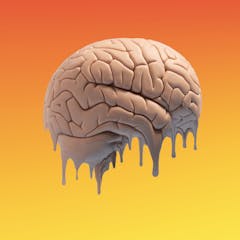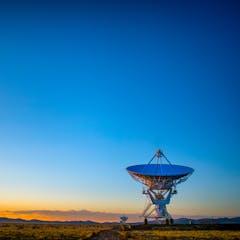
Articles on Societal impacts
Displaying 1 - 20 of 22 articles

Ethics is often neglected in engineering education, two researchers write, despite mounting questions about how to responsibly design artificial intelligence programs.

Use-inspired research goes beyond translational research to build lasting connections between researchers and communities.

Rapidly changing temperatures and sensory environments are challenging the nervous systems of many species. Animals will be forced to evolve to survive.

Two decades ago, the nanotechnology revolution avoided stumbling by bringing a wide range of people to the table to chart its development. The window is closing fast on AI following suit.

AI poses a variety of ethical conundrums, but the NASA teams working on Mars rovers exemplify an ethic of care and human-robot teamwork that could act as a blueprint for AI’s future.

Nanoparticles have contributed to profound medical advances like the COVID-19 vaccine, but without oversight, they pose ethical and environmental issues.

Industry leaders, scientists and policymakers may see AI’s technical potential, but societies have trouble adapting to revolutionary advances without broad public participation.

More invasive devices have prompted new debates about privacy and freedom. But it’s important to keep in mind that other technologies already sense and shape our thoughts, a neuroethicist argues.

Three Indigenous studies scholars draw from colonial histories and explain why listening for alien life can have ethical ramifications.

Capturing biometric data helps UN agencies and other groups avoid the risk of fraud and increase efficiency. But the practice is complicated and has created security risks for vulnerable groups.

Scientists can create viable eggs from two male mice. In the wake of CRISPR controversies and restrictive abortion laws, two experts start a dialogue on ethical research in reproductive biology.

Political mobilization among scientists has been growing in recent years. Two social scientists break down what this looks like and how it represents a culture shift among the scientific community.

Environmental DNA provides a wealth of information for conservationists, archaeologists and forensic scientists. But the unintentional pickup of human genetic information raises ethical questions.

Despite the association of ‘Luddite’ with a naïve rejection of technology, the term and its origins are far richer and more complex than you might think.

Powerful new AI systems could amplify fraud and misinformation, leading to widespread calls for government regulation. But doing so is easier said than done and could have unintended consequences.

Two experts in policy and technology who were also co-authors of an international climate assessment see reasons for optimism.

Our tendency to view machines as people and become attached to them points to real risks of psychological entanglement with AI technology.

Following the controversial births of the first gene-edited babies, a major focus of the Third International Summit on Human Genome Editing was responsible use of CRISPR.

The proteins that cover nanoparticles are essential to understanding how they work in the body. Across 17 proteomics facilities in the US, less than 2% of the identified proteins were identical.

From warfare to entertainment and VR, brain-computer interface development has extended beyond prosthetics for patients with disabilities. Missing is full ethical consideration of the consequences.
